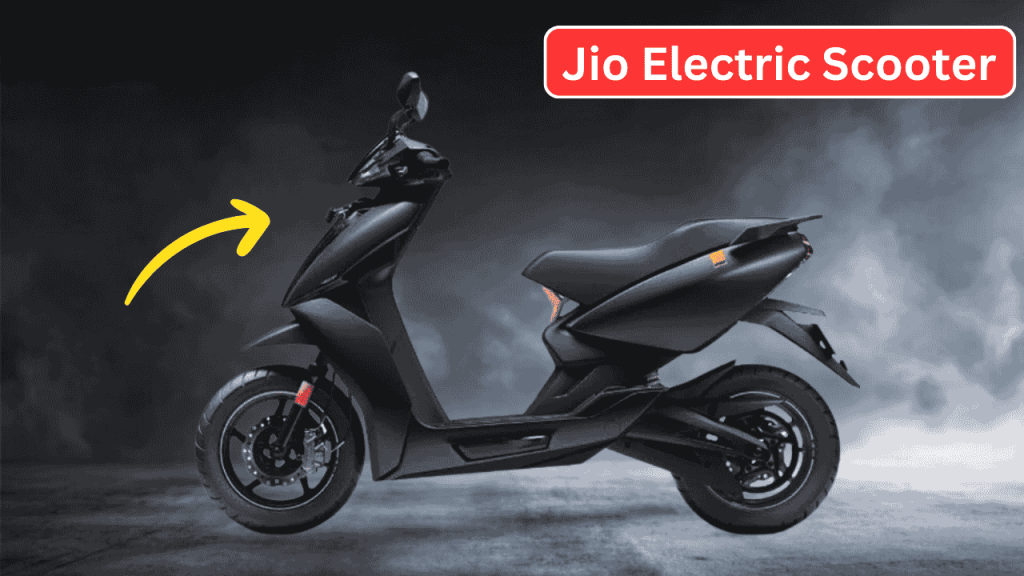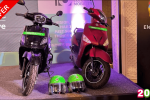
In a bold move that signals Reliance Industries’ serious ambitions in the electric mobility sector, the conglomerate is set to launch the Jio Electric Scooter in early 2025. This entry into India’s rapidly growing electric two-wheeler market leverages Jio’s extensive digital ecosystem and Reliance’s manufacturing prowess to create what the company calls “the most connected and affordable electric scooter for the Indian masses.”
Digital Integration at Its Core
The Jio Electric Scooter’s most distinguishing feature is its deep integration with the Jio digital ecosystem. Each scooter comes equipped with an embedded Jio eSIM, providing constant connectivity without requiring a separate mobile data plan. This always-on connection powers a 7-inch touchscreen dashboard that serves as the command center for navigation, communication, and vehicle management.
The JioScooter app transforms the riding experience with features rarely seen in this price segment. Riders can access turn-by-turn navigation with real-time traffic updates, stream music directly through the scooter’s built-in speakers, and even participate in voice calls through a Bluetooth helmet connection. The system also incorporates Jio’s voice assistant, allowing for hands-free control of essential functions.
Security features benefit significantly from this connectivity, with GPS tracking, geofencing capabilities, and remote immobilization options that can be controlled through the companion smartphone app. The system can automatically detect accidents and alert emergency contacts with the rider’s precise location.
Honda Activa 7G 2025, Future-Proof Design, Advanced Features and Pricing Insights
Affordable Electric Performance
Reliance has positioned the Jio Electric Scooter as a practical urban commuter with specifications that balance performance needs with cost considerations. The base model features a 2.5kWh lithium iron phosphate (LFP) battery pack that powers a 2.4kW hub motor. This configuration delivers a top speed of 65 km/h and a claimed range of 90 kilometers on a single charge—specifications that meet the needs of typical urban commuters.
A premium model with a 3.2kWh battery extends the range to approximately 120 kilometers and offers slightly improved acceleration. Both variants support standard AC charging that can replenish the battery from 0 to 80% in approximately 3 hours using a standard 5A home outlet.
What sets the Jio scooter apart in the crowded electric two-wheeler market is its affordability. Industry sources suggest a starting price of Rs. 65,000 for the base model (before subsidies), significantly undercutting many competitors with similar specifications. This aggressive pricing strategy is made possible by Reliance’s vertically integrated approach to battery sourcing and manufacturing.
Smart Energy Ecosystem
Beyond the scooter itself, Jio is creating an energy ecosystem that addresses the common pain points of electric vehicle ownership. The company plans to leverage its vast network of Jio Mart Stores and Reliance Retail outlets to create battery swapping stations in major urban centers. This subscription-based service will allow riders to exchange depleted batteries for fully charged ones in less than two minutes, eliminating charging wait times for subscribers.
For home charging, the Jio PowerWall offers an interesting innovation—a wall-mounted charging station that doubles as a home backup power system. During power outages, the PowerWall can pull energy from the scooter’s battery to power essential home appliances, creating a bidirectional energy flow that adds value beyond transportation.
Design and Practicality
While focusing on technology and affordability, Jio hasn’t neglected the design and practical aspects of its electric scooter. The vehicle features clean, minimalist styling with LED lighting throughout and a choice of six contemporary colors. The design language emphasizes functionality with a flat floorboard, a large 22-liter under-seat storage compartment, and a front storage pocket with a USB-C charging port.
The scooter’s frame is constructed from lightweight yet durable aluminum alloy, keeping the overall weight under 95kg even with the battery installed. This light weight contributes to the scooter’s efficiency while making it easier to maneuver in tight urban spaces and when parking.
Practical features include an automatic parking mode that slightly engages the motor when stopped on inclines, preventing the scooter from rolling backward. A reverse gear function—uncommon in this segment—aids in navigating tight parking situations.
Manufacturing and Sustainability
Production of the Jio Electric Scooter will take place at Reliance’s newly developed manufacturing facility in Gujarat, with a reported annual capacity of 500,000 units. The company has emphasized its commitment to localization, with over 90% of components sourced within India to comply with the government’s Production Linked Incentive (PLI) scheme.
On the sustainability front, Reliance has announced a battery recycling program that will recover valuable materials from end-of-life battery packs. The company aims to establish a circular economy for battery materials, reducing the environmental impact of electric mobility. Solar-powered charging stations at select Reliance retail locations will offer carbon-neutral charging options for environmentally conscious consumers.
Market Impact and Future Roadmap
Analysts predict that Jio’s entry could significantly accelerate electric two-wheeler adoption in India, particularly in tier 2 and tier 3 cities where price sensitivity is higher. The company’s extensive distribution network—leveraging both Jio and Reliance Retail’s presence—provides a significant advantage in markets typically underserved by existing electric vehicle manufacturers.
Looking ahead, Reliance has hinted at an entire ecosystem of electric mobility solutions under the Jio Electric brand. Future products may include a three-wheeler for commercial applications and a more performance-oriented scooter targeting the premium segment. The company has also suggested plans to open its charging and battery swapping infrastructure to other manufacturers, potentially establishing a new standard for the industry.
The Jio Electric Scooter’s combination of connectivity features, practical performance, and aggressive pricing positions it as a potential game-changer in India’s electric mobility landscape. By leveraging its digital expertise and manufacturing scale, Reliance is poised to repeat in the mobility sector the kind of disruption Jio brought to telecommunications.
Frequently Asked Questions
Q: When will the Jio Electric Scooter be available for purchase? A: The scooter is scheduled for launch in the first quarter of 2025, with pre-bookings expected to open in late 2024.
Q: What is the expected price of the Jio Electric Scooter? A: The base model is expected to be priced at approximately Rs. 65,000 before subsidies, with the premium variant around Rs. 80,000.
Q: Do I need a separate data plan for the scooter’s connectivity features? A: No, the scooter comes with an embedded Jio eSIM with a complimentary data plan for the first two years. After that, connectivity packages will be available at preferential rates for Jio Scooter owners.
Q: What is the charging time for the Jio Electric Scooter? A: Using a standard 5A home outlet, the battery charges from 0 to 80% in approximately 3 hours. Full charging takes about 4 hours.
Q: Will replacement batteries be available for purchase? A: Yes, Jio will offer replacement batteries for direct purchase. Alternatively, users can subscribe to the battery swapping program in cities where the service is available.





